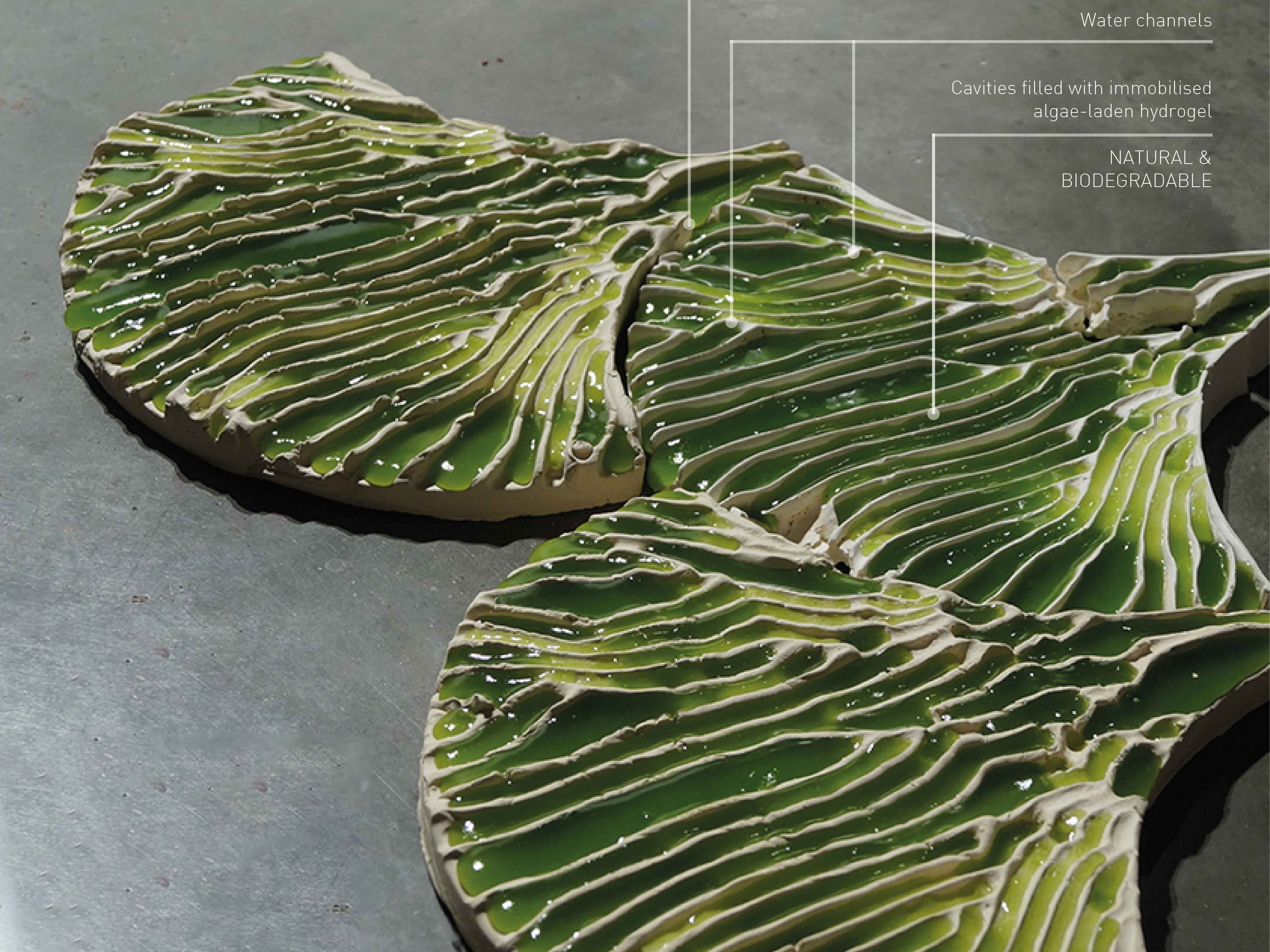
Indus
- Bio-Integrated Design Lab - Shneel Malik (UK)
Shneel Malik developed the Indus modular tile system for the Bio-Integrated Design Lab of the Bartlett School of Architecture. Her research and design aims to easily innovate how we deal with natural resources. Indus consists of ceramic tiles and algae, which can filter chemicals and heavy metals from water through photosynthesis. Indus is able to purify polluted water sources.
By rethinking the ways our buildings and cities can function, Malik seeks to address the universal issues considering natural resource extraction and distribution.
The fan-shaped tiles mimic the structure of leaves and their ability to distribute water evenly over every part of a plant. The water flows from top to bottom through the “vein-like channels” that contain a hydrogel of natural micro-algae. As the water flows through the channels, bioremediation takes place; a process in which microorganisms such as algae are used to absorb and break down pollutants. In this way, the hydrogel in Indus is able to purify the water and filter out the toxic materials.
The material needed to make the hydrogel can be supplied in powder form to which only water has to be added. Because the installation can be produced on site and built modularly by craftsmen, the system is a low-budget solution for areas affected by water pollution.